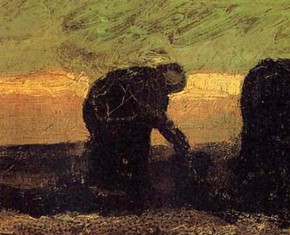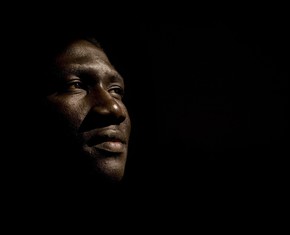The views expressed in our content reflect individual perspectives and do not represent the authoritative views of the Baha'i Faith.
Do miracles strengthen our faith — or do they weaken it?
Much of the contemporary view of the great faiths centers around the acceptance of miracles said to occur in their history, the logic being since their prophet performed physical wonders, one should accept and believe in them. Even throughout Baha’i history, events were recorded that appear to have supernatural causes — reminiscent of Christ’s purported miracles. The most well known and well-documented of these was the execution of the Bab, the forerunner of Baha’u’llah, the prophet of the Baha’i Faith, by 750 riflemen in Tabriz, Iran in 1850.
An account given by the British envoy Sir Justin Sheil tells the story: “The founder of the sect has been executed at Tabreez. He was killed by a volley of musketry, and his death was on the point of giving his religion a lustre which would have largely increased his proselytes. When the smoke and dust cleared away after the volley, Báb was not to be seen, and the populace proclaimed that he had ascended to the skies. The balls had broken the ropes by which he was bound, but he was dragged from the recess where after some search he was discovered and shot. His death, according to the belief of his disciples, will make no difference as Bab must always exist.”
Interestingly, the Bab and later Baha’u’llah categorically forbade their followers from attributing miracles to their person.
RELATED: Miracles are Impossible — Right?
There is another episode during the life of Bahaʼu’llah that illustrates the correct attitude towards things that at first seem ‘miraculous.’ During the mid-1860s, Bahaʼu’llah was in exile in the Ottoman Empire city of Adrianople — now Edirne, Turkey. After an assassination attempt, as he walked through the streets of Adrianople towards the mosque, his presence had such a charismatic impact on all observers that the crowds in the street stopped what they were doing to make way and followed him to the mosque. Upon his arrival, the preacher became speechless in the middle of his sermon. Later, Baha’u’llah paid a visit to a community of whirling dervishes, who upon his appearance also stopped what they were doing and fell silent. Many onlookers were overwhelmed with awe at these events and attributed miraculous powers to Bahaʼu’llah.
However, I find it interesting to read how Bahaʼu’llah himself relates this public event. In an account by Haji Mirza Haydar-’Ali, a devoted follower of Baha’u’llah, instead of exalting himself or making any claims of supernatural powers, Baha’u’llah is said to have observed: “When We entered the crowded mosque, the preacher forgot the words of his sermon, and when We arrived inside the takyih [religious establishment], the dervishes were suddenly filled with such awe and wonder that they became speechless and silent. However, since people are brought up in vain imaginings, they foolishly consider such events as supernatural acts and regard them as miracles!”
In another instance, Baha’u’llah appeared to be handing humanity a vital lesson on the role of miracles and sincerity. Years earlier, when Baha’u’llah lived as an exile in Baghdad, the local clerics approached him to ascertain his claim to be a divine Messenger sent by God. They requested that he perform a miracle to substantiate his claim.
Baha’u’llah responded: “Although you have no right to ask this, for God should test His creatures, and they should not test God, still I allow and accept this request… choose one miracle, and write that, after the performance of this miracle they will no longer entertain doubts about Me, and that all will acknowledge and confess the truth of My Cause. Let them seal this paper, and bring it to Me. This must be the accepted criterion: if the miracle is performed, no doubt will remain for them; and if not, We shall be convicted of imposture.”
Upon hearing this, the local clerics declined to pursue the matter, worrying that they would be forced to follow him if he produced some wonder. Thus they exposed both their inherent insincerity and the fundamental problem of using physical wonders as a proof of faith. This is a theme that is repeated in the Baha’i Writings: that we should not cling to so-called supernatural events for any sort of substantiation of belief. Instead, belief must be founded upon rational proofs and evidence. The only miracle Baha’is are permitted to attribute to Baha’u’llah is his revelation: the bringing forth of teachings and writings that transform society and the soul. We can directly observe the positive impact his teachings have had in communities where people have engaged with them and in individuals who have been transformed.
RELATED: The Science of Prayers and Miracles
If the metric for faith rested upon the performance of physical wonders, then one could establish spiritual truth simply by noting who possesses the most advanced technological powers. Using the example of the return of Christ: if tomorrow a being would actually appear in the sky in the imagined form of Jesus, how would one know that this was indeed some God-sent individual and not just a demonstration of advanced technology?
Christ’s position as a Manifestation of God is not established by his miracles, nor does recognizing it require one to witness them. Instead, his truth is clearly demonstrated by virtue of the impact his teachings and words had on the whole of human civilization — reframing our understanding of ethics, morality, and the social order. Bahaʼu’llah admonished his followers not to reduce the position of God’s Manifestations to simple miracle-workers: “We entreat Our loved ones not to besmirch the hem of Our raiment with the dust of falsehood, neither to allow references to what they have regarded as miracles and prodigies to debase Our rank and station, or to mar the purity and sanctity of Our name.”
This is not to say that Baha’is do not admit the possibility of miracles or supernatural occurrences — but these spiritual educators’ roles and purpose of appearing in the world are not to perform wonders to establish belief but to educate us and to uplift humanity.
















Comments
Sign in or create an account
Continue with Googleor